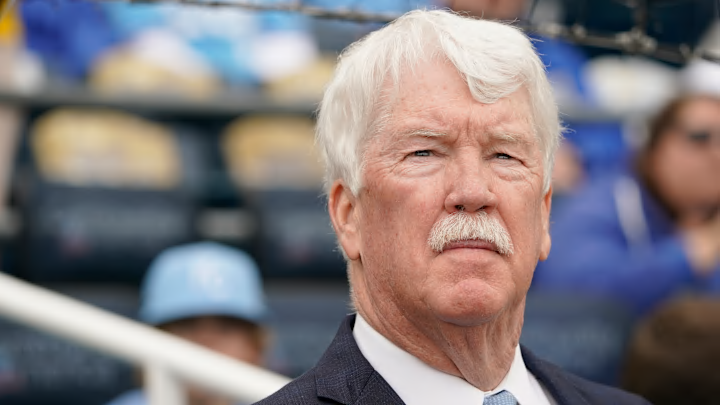The MLB saw plenty of changes in 2023. The pitch clock, bigger bases, and new superstars are just the peak of the evolving game. However, one thing that remains is the financial chasm between MLB teams.
The gap between payrolls reached a new record this past season, to the tune of $229 million. The New York Mets topped the league, with the Oakland Athletics ranking last. This is a noticeable trend, though, one that Royals fans are all too familiar with being on the wrong side of. Kansas City and seven other teams had an Opening Day payroll below $100 million, while eight other teams had one surpassing $200 million.
But, that was acceptable for many baseball fans. After all, MLB is the only major North American sport without a salary cap system. Sure, the luxury tax exists to try and mitigate the team's going on spending sprees. But, after eight teams combined for a record $209.8 million tax bill this season, owners around the league are more than content with paying the bill for trying to win. But dollars do not mean results.
The KC Royals once won with an average payroll. Them, and other teams, can still do that.
The top three taxpayers were the New York Mets, San Diego Padres, and New York Yankees were the top three taxpayers. Those three teams accounted for $140.5 million of the tax and did not reach the postseason. Buying a pennant, or playoff appearance is not a perfect science. Sure, the other five taxpayers did have a postseason appearance and the Texas Rangers did win the World Series. But their opponent, the Arizona Diamondbacks, ranked 21st in payroll. Five playoff teams had payrolls ranking 20th or below, while the luxury tax payers had the same hit rate.
A disparity in payroll does not necessarily translate to one in eventual results. Yet, the Los Angeles Dodgers international spending spree has fans clamoring for a salary cap, in the name of saving the little guy.
People clamoring for a salary cap in baseball forget who actually benefits from the cap. Sure, it would limit super teams on paper, but where else does all that money go? Straight to the owners. I am all for owners making money by owning a team; it is a business after all. But if a team like the Dodgers maxes out payroll, what do they do with the excess revenue? Los Angeles has massive sources of revenue, including a record-setting TV deal.
The players don't benefit, as their free-agent earnings take a big hit. Fans are not winners, as nothing suggests a salary cap and floor will lead to more wins. Owners are the biggest winners, while the disparity between clubs likely continues, evolving from payroll to other venues. Player development, analytics, and coaching are just a few avenues to think of.
Another way forward that fans like to talk about is a salary floor. The NFL has a similar system, requiring teams to spend at least 90% of the cap on player compensation. That idea came up during the recent lockout, but to no fruition.
"If you get a floor, you get a cap," Rangers pitcher and former MLBPA executive subcommittee repMax Scherzer said. "There was a proposal exchanged on that."
The fact remains: if a team wants to win, they will find a way. The Padres, despite being a smaller market, went out and tried to assemble their own superteam. Oakland, a franchise known for their frugal ways, has had more postseason appearances since 2000 than the Mets, Padres, and Rangers, just to name a few. Pouring resources into payroll does not guarantee wins.
The Royals spending money this offseason should be welcomed by fans, plain and simple. Leadership going out and strategically addressing roster gaps on a budget should lead to a more competitive club next season. But, don't point to the Dodgers and Mets and say that a salary cap will fix the economic issues in baseball.
